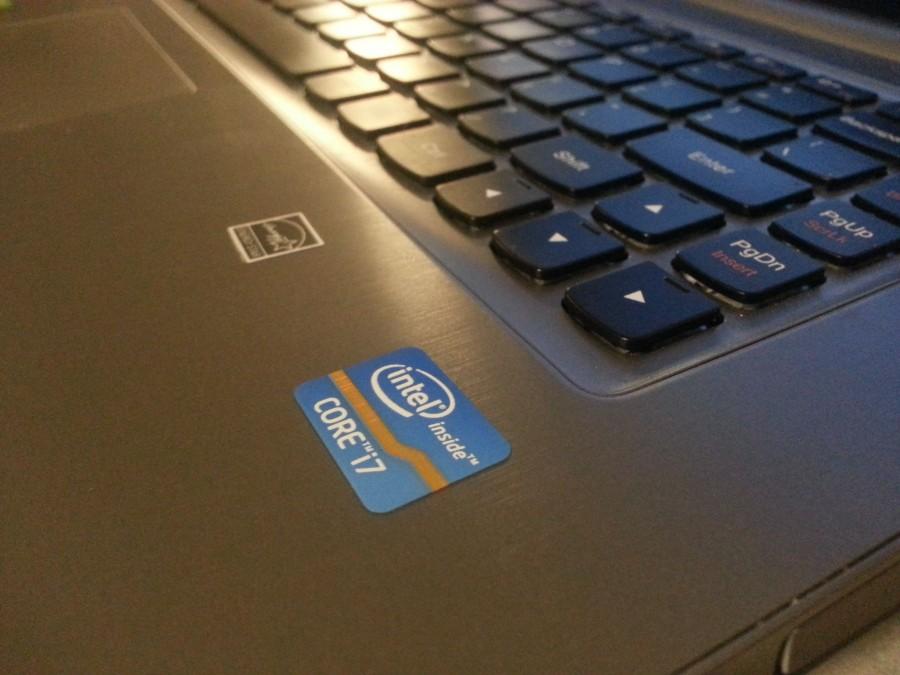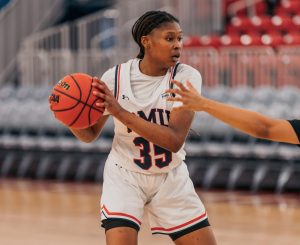Did you really need that i7?
August 26, 2014
A brief look into the aftermath of college laptop shopping
What laptop should I buy for college? Nearly every incoming freshman asked this just a few months ago. Going laptop shopping can be both a daunting and exciting experience for the technically illiterate and the information technology majors. Aisles and aisles, web pages and web pages filled with HD screens and fancy WiFi adapters. So what did you buy, and are you going to use what you have?
To start, lets talk about that processor. First of all, an Intel i7 is the best you’ll get in any high end consumer laptop bought in the last few months. Some folks say that it’s not a computer unless its got an i7, but I beg to differ. An i5 is the next best, and that’s what’s coming in the business class computers. Now I’ve only been a college student since mid August, but I did do a fair amount of computer work in high school, probably more than your average student. I was involved with the video program, and did some editing and graphical work, which as any computer person knows, takes a substantial amount of graphical and processing power.
If you’re working with heavy software like Autodesk Inventor or a video editor like Final Cut Pro for Mac, then you’ll need all the processing power you can get, but it’s not all in the processor. An i7 without a quality graphical solution for these types of graphically heavy processes is a waste. If you know that you’re going to be doing some heavy graphical work, then back up that i7 with a good amount of dedicated graphics memory. Otherwise, you’re building a computer that will be great at doing some complex algorithm that a math major can come up with, but you’re going to struggle trying to put together a video package. If you’re the student that will be typing your papers on Google Drive, and watching the occasional Youtube video, even if you’re a hardcore Hulu streamer, an i5 has more power than you’ll ever use.
How about that WiFi? Now most folks don’t really care, or even know about, what WiFi adapter they have in their computer, as long as they can get to Twitter, they’re happy. If the guy in Best Buy tried to sell you on something called 802.11ac, or you based your purchase on whether or not your machine had that capability, then you may have spent a little more than you needed to. 802.11ac is the new ‘standard’ in WiFi technology. It allows wireless transfer speeds well over what last years standard WiFi allowed for, otherwise known as 802.11a/g/n. In simpler terms, it’s considerably faster and better than the previous WiFi technology. 802.11ac has been around for a while, but it’s just becoming available for consumers.
Most, if not all, high end laptops are coming with 802.11ac capable WiFi adapters inside, and so are the newest phones and tablets. The problem is, both the adapter in your device and that antenna on the ceiling need to be capable of 802.11ac, and unfortunately, the infrastructure of most places you go are not caught up to this new standard. It will take a few years for the IT departments across the country to replace their infrastructure, and it will be a few years before that 802.11ac will do you any good.
What about the hard drive? Another big question that a lot of folks were wondering is what size hard drive should be in their new machine. The first decision to make is whether to have two disks or just one. High end machines are coming with two drives. The first one, a small solid state drive, usually 125 gigabytes (GB) or less, is for the operating system and any program files. Then there will be a data drive, usually 500GB or as much as a couple terabytes. That drive is for all the rest of the files you create, everything from word documents to video editing projects. Most folks will be fine with a single hard drive, with about 500 GB of capacity. There are advantages to having the two drives. It’s a safer option to keep your OS on a solid state drive as there’s less of a chance of it getting damaged, keeping your computer running a little more reliably, but having just one drive will do most folks just fine.
Let’s talk about RAM. Random Access Memory is more commonly referred to as RAM or Memory. This is a very important component to a computer. RAM is a method of storage much faster than Solid State drives or spinning hard drives. According to David Davidian, an IBM senior system architect, it’s so fast that Watson stored all 16 Terabytes of information it had to play on Jeopardy in RAM rather than hard drives. Generally the rule of thumb is the more RAM you’ve got the better. Most mid to high end laptops come with 4 to 8 GB of RAM and are upgradable to 16. Also, unlike flash drives, the manufacturer of RAM chips does make a difference, so do some research before you order another chip for your computer.
With all this said, what’s the best all around laptop? I have an HP Elitebook with an Intel i5, Intel HD integrated graphics, an older WiFi adapter without 802.11ac support, and a 500 GB hard drive. It’s a business class computer, and it does everything I need it to do. I run a basic video editing program, but I don’t expect to do anything else on my computer while its rendering. I stream plenty of media, but I make sure I plug into an ethernet jack when watching Amazon Prime. I also use plenty of cloud storage, and have a one terabyte external hard drive that all my media is on, so I’ve used less than an eighth of the available onboard hard drive space.
Whatever laptop you ended up with, whether its a Chromebook or an Alienware, it’s likely to do whatever you need it to do this year. As a freshman I doubt that I will be doing anything complex to accomplish school work. I’m majoring in software engineering, so I may eventually be using something that is a little more power hungry than Google Chrome, but when that day comes, I’m confident that this machine will do whatever I need it do.
What computer are you using this year, and did you take into consideration any of the topics discussed above? Let me know below in the comments section.












